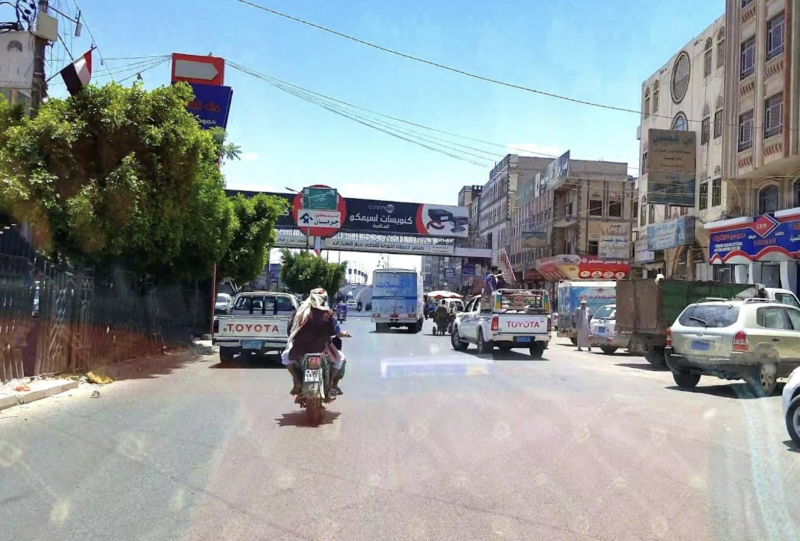Yemen : USNI Report to Congress on Houthi Terrorism Designation


On January 22, 2025, President Donald Trump signed executive order (E.O.) 14175 initiating a process for the redesignation of the Yemeni Shia Islamist group Ansar Allah (Arabic for “the Partisans of God”), commonly referred to as the Houthis, as a Foreign Terrorist Organization (FTO). On March 4, Secretary of State Marco Rubio redesignated Ansar Allah as an FTO.
The FTO designation authorizes the Secretary of the Treasury to impose asset freezing sanctions on the organization and triggers the application of 18 U.S.C. §3229B, which criminalizes the provision of material support to designated FTOs. E.O. 14175 further outlined a process requiring a review of some U.S. assistance programs in Yemen and directed the termination “as appropriate” of certain U.S.-funded projects, grants, and contracts with entities found to have made payments to Houthi entities or insufficiently documented Houthi abuses (see below).
The U.S. Department of the Treasury has revised general licenses providing some exceptions for transactions involving the Houthis. Exceptions for transactions involving the Houthis for trade in refined petroleum products and telecommunications have been made more restrictive.
The Houthis have controlled most of northern Yemen since 2015. Houthi attacks in and around the Red Sea after October 2023 disrupted regional security and global maritime commerce.
The group receives material support from Iran and Russia and has attacked Israel, U.S. vessels, and (before October 2023) Saudi Arabia and the United Arab Emirates (UAE). E.O. 14175 and the President’s statement say that U.S. policy is to cooperate with partners to “eliminate” Houthi capabilities and operations, as well as to deprive the Houthis of resources. The Administration has not specified what additional actions, resources, or authorities, if any, may be used to achieve those ends.
President Trump previously designated the group as both an FTO and an entity subject to sanctions under the “Specially Designated Global Terrorist” (SDGT) program in January 2021.
President Biden revoked both designations, citing concerns that they could impede the delivery of humanitarian assistance or jeopardize efforts to promote dialogue aimed at establishing ceasefire in the war in Yemen. In February 2024, the Biden Administration redesignated the Houthis as an SDGT, citing “unprecedented attacks against international maritime vessels in the Red Sea and Gulf of Aden.”
Congress and Yemen. Since 2015, Congress has considered the effects of conflict and sanctions on regional security and humanitarian conditions in Yemen. Congress has provided resources and authorities to support U.S. policy, including with additional defense funding in 2024 to support U.S. regional deterrence operations. In the 119th Congress, several proposals would authorize sanctions on the Houthis or direct the executive branch to designate the Houthis as an FTO (H.R. 1848, S. 70, and S. 159). The Trump Administration has not said whether it intends to request additional funds or authorities from Congress in support of its wider Yemen policy.
The 119th Congress may seek additional information from the Administration concerning its policy toward Yemen and the Houthis, its expectations about the reactions and intentions of Yemeni and other international actors, its projections of the benefits and costs of different options, and its plans with regard to U.S. humanitarian assistance in Yemen. Congress may consider opportunities to influence U.S. policy toward Yemen, including via authorization and appropriations legislation, with regard to U.S. sanctions, diplomacy, assistance programs, and military operations.
Policy Context
Political-Military Developments. More than 100 Houthi attacks on Israel and on international shipping and U.S. and partner naval vessels in the Red Sea region occurred from October 2023 to January 2025, with the Houthis claiming their attacks were intended to support Palestinians and secure an end to Israeli operations against the Palestinian Sunni Islamist group and U.S.-designated FTO Hamas. In January 2025, Yemen’s representative to the United Nations (UN) rejected Houthi justifications.
Yemen’s internationally recognized government has welcomed the Trump Administration’s redesignation of the Houthis as an FTO. Leaders of Yemen’s Southern Transitional Council (STC) also welcomed the U.S. decision and reiterated a call for joint international-Yemeni military operations to counter the Houthis and reduce the area under their control. The STC has received military aid from the UAE and seeks to reestablish southern Yemen as a separate state, which it was prior to 1990.
In a September 2024 report, the United Nations panel of experts on Yemen described “the transformation of the Houthis from a localized armed group with limited capabilities to a powerful military organization, extending their operational capabilities well beyond the territories under their control.” The panel attributed the Houthis’ evolution to “unprecedented” transfers of material support from Iran, Lebanese Hezbollah, and Iraqi armed groups.
U.S. officials have condemned Houthi attacks and the Houthis’ detention of Yemenis with ties to UN or U.S. government entities and aid organization. U.S. sanctions have been levied against additional Houthi operatives and supporters. U.S. military strikes have targeted Houthi weapons and related facilities in Houthi-controlled areas of Yemen since January 2024, including a January 8, 2025 strike targeting two underground storage facilities.

Taiz — Local sources reported Thursday that security forces dismantled protest camps set up along Jamal Street in central Taiz, following a d…

Sana’a — Police in the Yemeni capital announced Wednesday the arrest of two suspects accused of killing a man and his wife on Khawlan S…

Sana’a — Local sources reported that four civilians, including two women and a child, were killed when an armed assailant opened fire o…